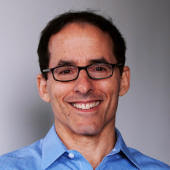This piece was reprinted by OpEd News with permission or license. It may not be reproduced in any form without permission or license from the source.
That right-wing transformation was mostly launched by the Reagan team, but it came to be accepted, and even deepened by some liberal political leaders as well. Perhaps this normalization of the radical changes of the past few decades is why some commentators perceive Bernie's program - designed to reverse this damage - as "radical."
Here it is important to note that the fight over this right-wing transformation has never been so much about "the market" versus "the state." Almost every economy in the world is a mixture of both.
But the Reagan "revolution" and the counter-reforms that followed (e.g., the WTO, NAFTA, financial deregulation, permanent normal trade relations with China, anti-labor legislation and practices) were not so much about changing the relative weight of market and government.
Rather what changed most is that both markets and government were harnessed vastly more to redistribute income and wealth upward. The result is an America that is unique among high-income countries in the percentage of people who are employed full-time and yet struggling to get by, not to mention the more than 10 million children in poverty and more than half a million homeless people.
Sanders, in his reform program, seeks to use both markets and government to reverse this massive upward redistribution of income and wealth.
Of course, government has to take the lead with public investment where private investment would not be forthcoming - as in the transformation of some energy infrastructure to reduce carbon emissions.
But other important parts of Sanders' program move the economy away from government toward more market-based solutions: for example, reducing the role of government-granted-and-regulated patent monopolies in driving up the price of pharmaceuticals, medical supplies, and health-care costs. Or breaking up other monopolies in favor of more market competition, in the technology and financial sectors.
Sanders also favors a less interventionist role for the Federal Reserve in the labor market, as the Fed has triggered almost all U.S. recessions since the end of World War II (except for the last two) by raising interest rates when this was unnecessary.
And he has led the way to reduce one of the most powerful and destructive abuses that our government has unleashed upon Americans and the world: the terrible, unnecessary, "forever wars" that most Americans now reject. Some of his best allies in this fight have been conservative Republicans who are skeptical of this aspect of "big government" - as has been true in the historic fight to stop U.S. military participation in Saudi Arabia's genocidal war in Yemen.
In short, Sanders is much more pragmatic and less ideological than his opponents would like to admit. But we can expect to hear more - from various quarters - of this labeling him as a "radical," if he continues to gain on his competitors in the Democratic primary.
(Note: You can view every article as one long page if you sign up as an Advocate Member, or higher).





